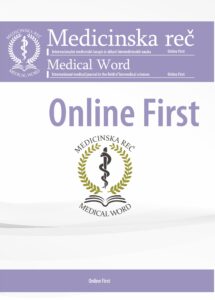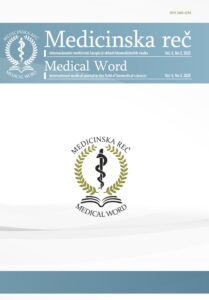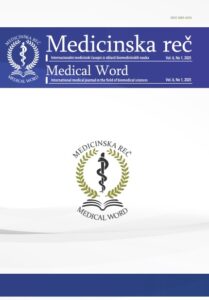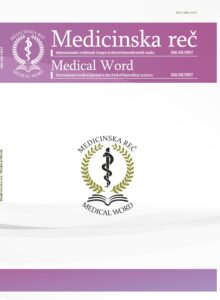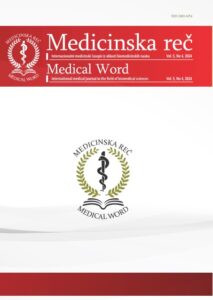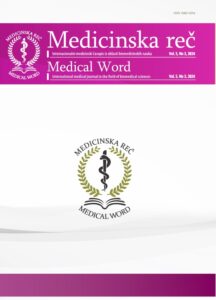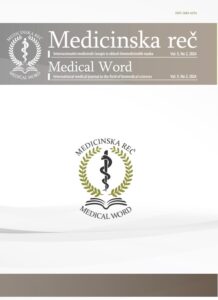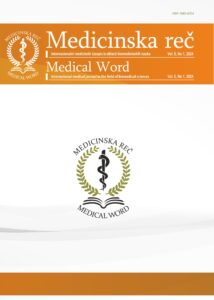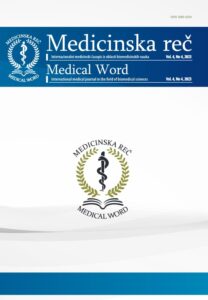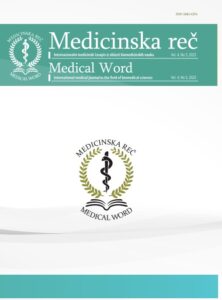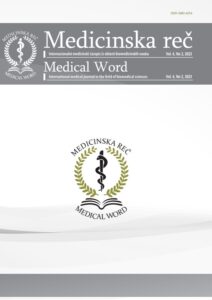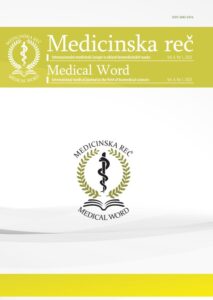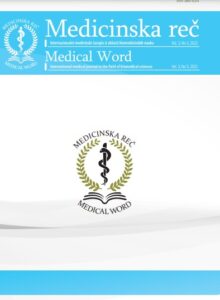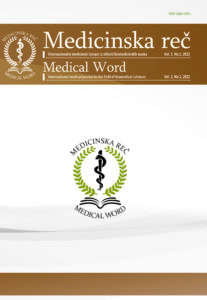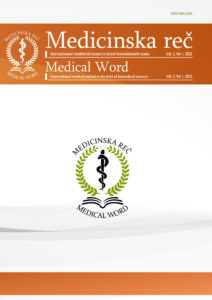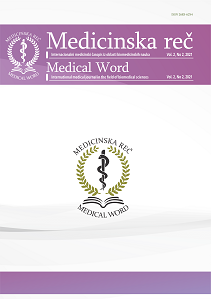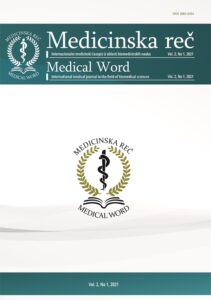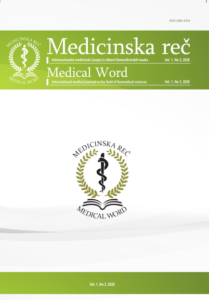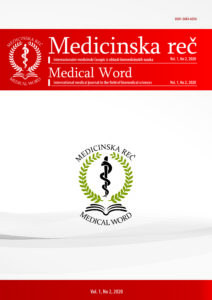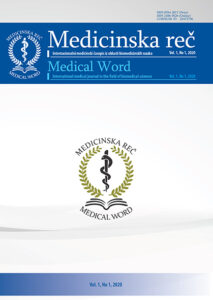Characteristics of Age and Gender Distribution of Abused and Neglected Children – National Strategy and Prevention Measures
Original article
Danijela Đerić, Strahinja Konstantinović, Maša Milčić
61–64
https://doi.org/10.5937/medrec2402061D
Abstract
The problem of child abuse and neglect in the world is increasing, there is an increasing number of children with this problem and there is a need to define this problem as well as legal guidelines and guidelines to work more efficiently. Injuries in abused and neglected children are very diverse, rarely endangering the life of the child or leading to permanent disability, and must be hospitalized and surgically treated as emergencies.
The retrospective study included 79 patients treated at the Clinic for Pediatric Surgery Orthopaedics and Traumatology (KDHOT), University Clinical Center Niš.
The results show that there was no statistically significant distribution by gender. The average age of all hospitalized children in the examined period is 7.97 ± 6.67 years with a median of 7.00 years.
In the largest percentage of cases, abusers are peers or relatives. Although the public today more than ever is warned about various cases of violence against children, this is a problem that is solved in practice by a small number of experts and which is not given as much importance as necessary to solve this problem.
Key words: Child abuse, prevention
Literatura
- Johnson C. Physical abuse. Accidental Versus Intentional Trauma in Children, In: J. Myers et al. (eds.) The APSAC Handbook on Child Maltreatment. 2nd ed. California: Sage Publications Inc; 2022. p. 249–268.
- Išpanović-Radojković V. Emocionalno zlostavljanje i zanemarivanje u detinjstvu. U: Bogdanović R, Radolović N (urednici). Pedijatrijska škola Srbije, XII seminar, 7–13. jun 2009. Vrnjačka Banja, Zbornik predavanja, Beograd, 2009: 28–36.
- Cooper A, Floyd T, Barlow B, et al. Major blunt abdominal trauma due to child abuse. J Trauma 1998; 28: 1483-7.
- Sari N, Büyükünal, S.N.C. A study of the history of child abuse. Pediatr Surg Int 1991; 6: 401–6.
- Išpanović Radojković V. Porodično nasilje. U: BabićM (ur). Skrining u medicini. Beograd: Jugoslovenska fondacija protiv raka; 2001. p. 719–39.
- Kolko D. Child Physical Abuse. In: J. Myers et al. (eds.) The APSAC Handbook on Child Maltreatment. 2nd ed. California: Sage Publications Inc; 2002. p. 21–54.
- Glaser D. Emotional abuse and neglect (psychological maltreatment): a conceptual framework. Child Abuse Negl 2002; 26: 697–714.
- Jenny C; Committee on Child Abuse and Neglect. Evaluating infants and young children with multiple fractures. Pediatrics 2006; 118 (3): 1299–303.
- Wootton-Gorges SL, Stein-Wexler R, Walton JW, Rosas AJ, Coulter KP, Rogers KK. Comparison of computed tomography and chest radiography in the detection of rib fractures in abused infants. Child Abuse Negl 2008; 32 (6): 659–63.
- Kleinman PK, Marks SC Jr. A regional approach to the classic metaphyseal lesion in abused infants: the proximal humerus. AJRAm J Roentgenol 1996; 167 (6): 1399–403.
- Kleinman PK, Marks SC Jr. A regional approach to classic metaphyseal lesions in abused infants: the distal tibia. AJR Am J Roentgenol 1996; 166 (5): 1207–12.
- Kleinman PK, Marks SC Jr. A regional approach to the classic metaphyseal lesion in abused infants: the proximal tibia. AJR Am J Roentgenol 1996; 166 (2): 421–6.
- Kleinman PK, Marks SC Jr. A regional approach to the classic metaphyseal lesion in abused infants: the distal femur. AJR Am J Roentgenol 1998; 170 (1): 43–7.
- Kemp AM, Dunstan F, Harrison S, et al. Patterns of skeletal fractures in child abuse: systematic review. BMJ 2008; 337: a1518.
- Hobbs CJ, Bilo RAC. Nonaccidental trauma: clinical aspects and epidemiology of child abuse. Pediatr Radiol 2009; 39: 457-60.
- Altimier L MSN, RN. Shaken Baby Syndrome. J Perinat Neonat Nurs 2008; 22(1): 68-76.
- Herrenkohl TI, Higgins DJ, Merrick MT, Leeb RT. Positioning a public health framework at the intersection of child maltreatment and intimate partner violence: Primary prevention requires working outside existing systems. Child Abuse Negl 2015; 48: 22-8.
- Hammond WR. Public Health and Child Maltreatment Prevention: The Role of the Centers for Disease Control and Prevention. Child Maltreatment 8(2); 2003: 81-3.
- Išpanović-Radojković V, Ignjatović T, Vujović R, Stevanović I, Srna J, Žegarac N. Priručnik za primenu Opšteg protokola za zaštitu dece od zlostavljanja i zanemarivanja. Beograd: Centar za prava deteta; 2006.
- Savet za prava deteta Vlade Republike Srbije. Nacionalni plan akcije za decu. Savet za prava deteta Vlade Republike Srbije, februar 2004.
- Opšti protokol za zaštitu dece od zlostavljanja i zanemarivanja. Zaključak Vlade Republike Srbije 05 broj: 011-5196/2005 od 25. avgusta 2005. godine.
- Nacionalna strategija za prevenciju i zaštitu dece od nasilja. Zaključak Vlade Republike Srbije 05 broj: 560-5713/2008 od 25. decembra 2008.
- Posebni protokol sistema zdravstvene zaštite za zaštitu dece od zlostavljanja i zanemarivanja. Beograd: Ministarstvo zdravlja Republike Srbije; 2009.


